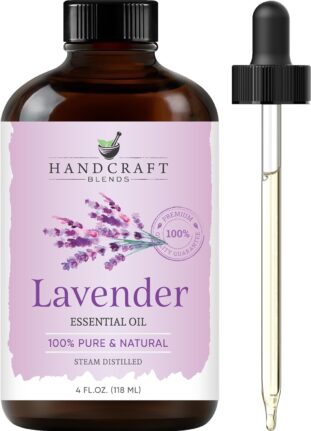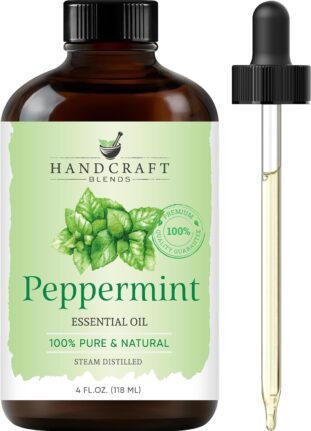While aromatherapy can be beneficial, there are hidden dangers in using essential oils especially for senior safety. Do not assume they were totally safe because they are natural.
What could possibly go wrong with a little lavender or some lemon, right? You will learn pretty quickly that just because something is natural does not mean it cannot pack a punch.
This article reviews these safety concerns, and provides tips to ensure that you use them safely. Three of them are presented here.
Dangers in Using Essential Oils – Key Safety Considerations
Consult Your Healthcare Provider
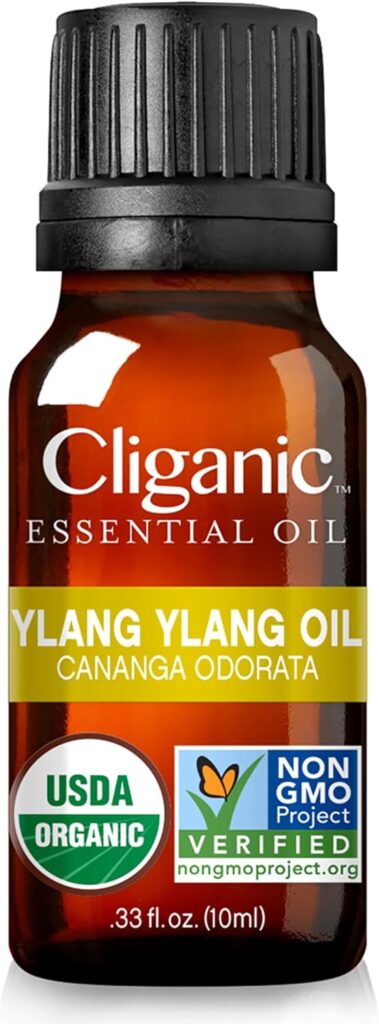
Consult with your healthcare provider about any pre-existing health conditions before starting aromatherapy. If you have high blood pressure, you may want to avoid stimulating oils or anything that could potentially increase your blood pressure or heart rate.
Buy Quality Oils
Read about the quality of the product you are buying. Cliganic and Handcraft Blends are reputable brands to source for.
Most essential oils are sold in a dark-colored bottle, and the manufacturer should clearly identify the source (where the oil comes from) on the label. Be sure the ingredients are pure, meaning the oil does not include other types of perfumes, so always check the product label.
Store Oil Properly
Remember that heat, light, and oxygen affect the quality of the oil. Do not transfer oils into alternate bottle. Only store your oils in their original containers (bottles with air-tight tops) and in a cool, dark place away from direct sunlight.
There is a reason why they are sold in dark-colored bottles! Finally, always keep oils out of the reach of children and pets.
Application : Always Dilute Oils
Essential oils should always be diluted before use as they are highly concentrated. For instance, use three to five drops of oil per 1/2 cup of water in a diffuser. Diffuse oils in a ventilated area. Only diffuse essential oils for about 30 minutes at a time, taking regular breaks in between.
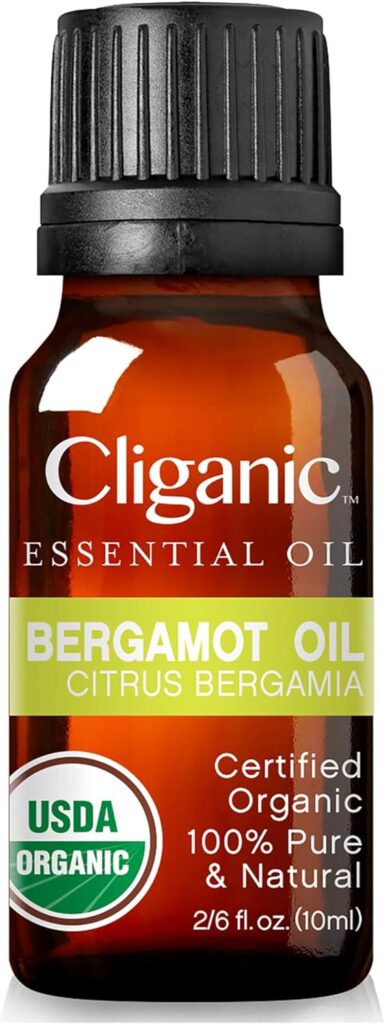
If you notice any adverse symptoms like headache, nausea, vomiting, irregular heartbeat, or sinus irritation, stop aromatherapy right away and consult a doctor.
Use caution if you are applying essential oils to your skin. NEVER apply essential oil directly to your skin, but rather, dilute it in a carrier oil like coconut oil. Ingesting (swallowing) essential oils is not recommended.
If you have adverse reactions to topical application of essential oils like skin burning or skin rashes, be sure to seek medical attention right away.
Safety Concern 1: Regulatory Gray Area
Essential oils fall into a bit of a regulatory gray area. Unlike medications or foods, they are not strictly regulated by the FDA (the U.S. Food and Drug Administration).
This means companies can pretty much make whatever claims they want on the labels—“soothes anxiety,” “boosts immunity,” you name it—without having to back it up with much scientific proof.
This lack of regulation can lead to a lot of confusion and, honestly, some pretty misleading information.
However, the FDA does step in if an essential oil is marketed as a drug (such as when a brand says its oil “treats” or “cures” a disease). That is when the product has to meet specific safety and effectiveness standards.
But when companies position essential oils as “supplements” or just label them as aromatherapy products, they don’t face the same scrutiny.
This is why you will see all those vague disclaimers like, “Not intended to diagnose, treat, cure, or prevent any disease” on the bottles. It’s kind of like the Wild West for essential oils.
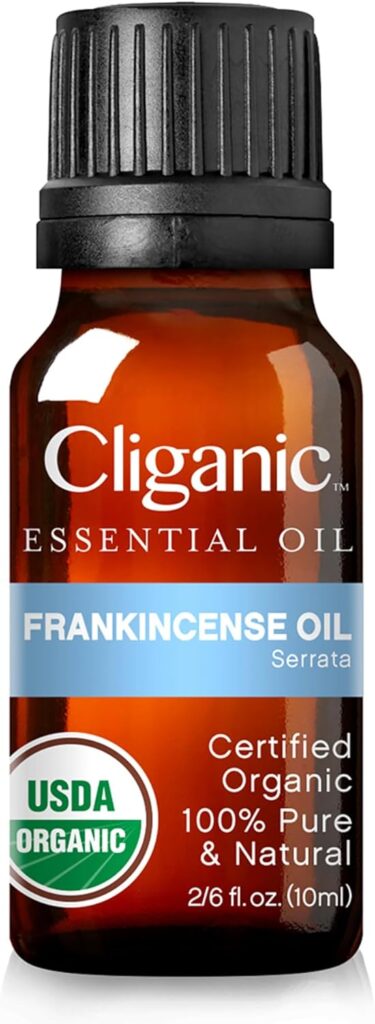
While some essential oils may benefit physical and mental health conditions, they should never replace treatment by a qualified healthcare professional. Take safety precautions when using essential oils.
Safety Concern 2: The Risk of Sensory Overload
When I first got into essential oils, I went a little overboard. I was running five diffusers in one room, a concoction of peppermint, eucalyptus, and some random citrus blend I threw in just because it smelled good. And honestly, it did smell amazing… until it didn’t.
About an hour later, I had a splitting headache and my eyes were burning. That was my first lesson in sensory overload.
What I did not realize is that essential oils are incredibly potent. Just a few drops are all you need, especially for seniors, who can be extra sensitive to strong scents. I learned this the hard way when my grandmother stayed over one night.
I had a lavender diffuser running because I thought it would help her sleep, but she ended up complaining about feeling dizzy and nauseous. Turns out, lavender can sometimes have the opposite effect, especially if overused. Who knew?
So, here’s a tip from experience: start slow. Try one oil at a time, and limit it to a few drops. Seniors (and anyone really) can get overwhelmed by too much scent. When diffusing, make sure the room is well-ventilated, and give them the option to turn it off if it’s too much.
It is much better to have the room smell faintly of something nice than have your house smell as if a candle store exploded. Finally, always read up on each oil before using it—some are way stronger than they let on.
Safety Concern 3: Potency and Application
Essential oils should always be diluted before use as they are highly concentrated. For instance, use three to five drops of oil per 1/2 cup of water in a diffuser. Diffuse oils in a ventilated area. Only diffuse essential oils for about 30 minutes at a time, taking regular breaks in between.
If you notice any adverse symptoms like headache, nausea, vomiting, irregular heartbeat, or sinus irritation, stop aromatherapy right away and consult a doctor.
Use caution if you’re applying essential oils to your skin. You should never apply an essential oil directly to the skin, but rather, dilute it in a carrier oil like coconut oil. Ingesting (swallowing) essential oils is not recommended.
If you have adverse reactions to topical application of essential oils like skin burning or skin rashes, be sure to seek medical attention right away.
Ground Rules for Seniors
So, if you are using essential oils around seniors, there are a few ground rules. First, always dilute—like really dilute—before applying to skin. Use a carrier oil like coconut or jojoba and stick to a ratio of at least 1-2 drops per tablespoon of carrier oil.
Second, avoid using oils like eucalyptus or rosemary around anyone with respiratory issues; they can make it harder to breathe. And third, never assume an oil is okay to ingest unless a healthcare professional gives the green light. It’s better to be over-cautious than to end up with an unexpected trip to the Emergency.
Examples of Improper Application
When I first got into essential oils, I remember trying to make a DIY cleaning spray with tea tree oil. I didn’t dilute it enough and ended up with red, itchy hands for two days. A total rookie mistake!
Now, if I had a reaction like that, imagine the risks for elderly seniors who may have more sensitive skin or underlying health conditions.
Note that some oils, like cinnamon or clove, can actually cause burns if applied directly to the skin.
And do not even get me started on the risk of ingestion. A friend’s aunt thought adding a few drops of peppermint to her tea would soothe her upset stomach.
She ended up in the doctor’s office with a burning throat and nausea because peppermint oil is way more concentrated than the herb itself.
When used correctly, aromatherapy can be a powerful, natural method to manage anxiety and stress.
Avoiding the Dangers of Using Essential Oils: General Mode of Application
1. Inhalation
There are 3 modes of application for inhalation: diffusers, steam, sprays.
- Diffusers: Devices that disperse essential oils into the air.
- Steam inhalation: Adding a few drops to hot water and inhaling the steam.
- Sprays: Used on pillows, linens, or in rooms.
- Aroma sticks: Portable sticks that absorb the essential oil
2.Topical Application (Body creams, oils, rolls, and lotions)
Essential oils are often diluted with a carrier oil (such as coconut or jojoba oil) and then massaged into the skin.
They can be applied to specific areas, like the temples, wrists, or neck. They are also used in skincare and massage oils. The dangers in using essential oils undiluted are irritation and burns to the skin!
3. Baths
A few drops can be added to a warm bath to help create a relaxing experience, but once again, do not overdo this especially if you have sensitive skin!
4. Compresses
Diluted essential oils can be applied to hot or cold compresses and placed on areas of the body for targeted relief. The dangers of using essential oils in the pure state can be quite painful!
5. Aromatherapy Jewelry
Lava rock bracelets or necklaces that you dab with a drop of essential oil. The dangers in using essential oils here is using too much.
Practical Tips and Dangers in Using Essential Oils
When most people think of aromatherapy, they probably picture a cozy room, some fluffy blankets, and a fancy diffuser puffing out little clouds of scented mist. And while this is one of the main ways to enjoy essential oils, it is not the only method.
Trust me, I’ve experimented with all sorts of ways to get my aromatherapy fix—some worked great, some were… less great. (Pro tip: Adding oils to your bathtub without an emulsifier is a slippery, dangerous mess waiting to happen.)
So, the classic diffuser method is always a win. You just fill it with water, add a few drops of your favorite oil, and let it work its magic. It is perfect for setting a relaxing vibe in the living room or freshening up a stuffy office. But I have found that seniors often prefer subtler methods.
Try making a “pillow spray” by mixing a few drops of lavender and chamomile oil with some distilled water in a spray bottle. Just a light spritz before bed, and it is like a gentle nudge toward a good night’s sleep.
Overall, aromatherapy is a versatile and accessible practice that can be tailored to meet individual needs and preferences.
Conclusion – Dangers in Using Essential Oils
There are hidden dangers in using essential oils, especially for seniors. Without proper dilution or usage, these potent oils can cause skin irritation, respiratory issues, and even pose safety risks like dizziness or nausea.
Plus, because essential oils aren’t strictly regulated, low-quality or adulterated products can make things worse. From potential sensory overload to the risk of adverse reactions, it is important to use them carefully.
For safety, always research each oil, buy from reputable brands, and consult a healthcare professional especially if you have underlying pre-existing. The dangers in using essential oils are real!
Related Articles
- 7 Effective Overlooked Aromatherapy Oils for Stress
- 7 Top Aromatherapy Oils for Stress [SENIORS]
- 10 Best Relaxation Techniques for Anxiety and Stress
- 10 Best Guided Meditation Apps Compared
FAQ – Dangers of Using Essential Oils
What are the dangers of using essential oils?
The dangers of using essential oils include skin irritation, allergic reactions, respiratory issues, and even poisoning if ingested. Certain oils are too strong for seniors or those with health conditions. Always dilute properly, avoid sensitive areas like eyes, and never assume “natural” means completely safe.
Can essential oils cause allergic reactions?
Yes, essential oils can trigger allergic reactions in some individuals. Skin rashes, hives, or respiratory issues may occur, especially with potent oils like cinnamon or clove. Always perform a patch test before widespread use and consult a healthcare professional if you have allergies.
Are essential oils safe for elderly individuals?
Essential oils can pose risks for elderly individuals due to their sensitive skin and respiratory systems. Strong scents may cause dizziness or nausea. Always dilute the oils properly and consult a healthcare provider before use, especially for seniors with preexisting health conditions.
Is it safe to ingest essential oils?
Ingesting essential oils is generally not safe. Many oils can be toxic when consumed, leading to nausea, vomiting, or more severe reactions. Ingestion is generally not a good idea! Consider seeking expert advice for more information
References
Pedosky, L (2023) What Are Essential Oils? A Complete Guide on Aromatherapy and Its Potential Health Benefits https://www.everydayhealth.com/wellness/what-are-essential-oils-a-complete-guide-on-aromatherapy-and-its-potential-health-benefits/
Bowers, D (2023) What Is Aromatherapy and How Does It Work? https://www.deeparomatherapy.com/what-is-aromatherapy-and-how-does-it-work/


